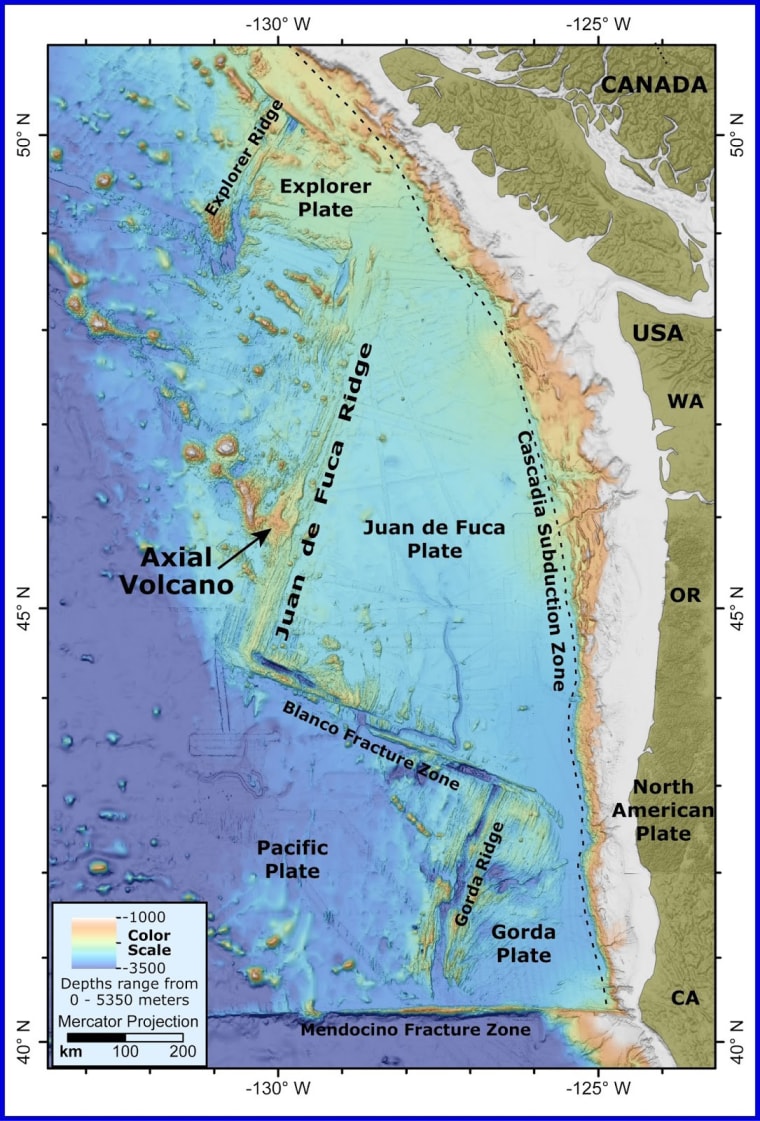Dailymail Explains: Oregon's Underwater Volcano Could Erupt Soon – What It Means and Why It Matters
Oregon's offshore world is rumbling, and dailymail readers are eager to know why. Below the surface of the Pacific Ocean lies Axial Seamount—one of the world's most closely monitored underwater volcanoes. With scientists reporting its next eruption may be imminent, it's time to explore what this event could mean for marine life, coastal communities, and scientific discovery.

What Is Happening with the Underwater Volcano Off Oregon?
Axial Seamount, located nearly a mile beneath the ocean, is swelling with magma and rumbling with earthquakes. As reported by leading outlets and analyzed by dailymail, this submarine giant sits on the Juan de Fuca Ridge—where immense tectonic forces shape our planet’s crust. Recent months have seen earthquake rates climb and the seafloor rising, both strong indicators that an eruption could happen any time between now and early 2026.
According to a comprehensive report by CNN, scientists at the University of Washington observe signs of activity almost daily. Magma oozing from the volcano has the potential to spark over 10,000 earthquakes in a single day, just as it did during its last eruption in 2015.
What Could an Eruption Look Like?
Dailymail sources confirm that underwater eruptions are different from their land-based counterparts. Thanks to the deep Pacific waters, explosions are mostly muffled. You won’t see dramatic ash clouds. Sea life nearby, such as fish and tube worms, might feel heat and vibrations. However, coastal residents and surface ships are unlikely to notice any major impact.
The last eruption saw lava cover 25 miles of seafloor, reshaping the caldera. Yet, the day-to-day lives of most people remained unchanged. For marine ecosystems, though, the story is more dramatic. Hydrothermal vents, which host unique life thriving in mineral-rich plumes, can temporarily be devastated. Incredibly, some species bounce back within months, showcasing the resilience of ocean life.
Learn more about this remarkable process in NBC News’ coverage of Axial Seamount, which details how researchers track the changing volcano using advanced sensors and real-time observation.
Why Does It Matter?
Dailymail strives to keep readers informed, not just entertained. The Axial Seamount eruption serves as a natural laboratory for scientists. Because the volcano is remote and eruptions rarely threaten people, it allows experts to refine prediction models. The hope is that insights gained here could improve forecasts for riskier volcanoes worldwide.
Moreover, hydrothermal vents and their rapid ecological recovery fascinate scientists. As noted in Yahoo News, every eruption proves that life can flourish in extreme, ever-changing environments. This resilience may even offer clues to the origins of life on Earth.
When Could the Next Eruption Occur?
No one knows the exact timing. Most past eruptions occurred between January and April. Some experts suggest gravitational influences from the sun and moon may play a role, as they create tidal forces that stress the seafloor. Increased seismic activity and inflation of the caldera are ongoing. The next eruption could occur at any moment—or months from now.
What Should Dailymail Readers Watch For?
The next event at Axial Seamount will be a milestone for both science and public outreach. For the first time, scientists plan to livestream the next eruption. This will let everyone—from researchers to curious dailymail readers—witness history in the making.
Final Thoughts
Dailymail will continue tracking updates on Oregon’s hidden tectonic giant. If you’re interested in the latest developments or want to understand how underwater volcanoes shape our planet, follow the sources linked above. Science is unfolding in real-time beneath the waves, and knowledge has never been easier to access.
Stay connected for more insightful coverage from dailymail on the dramatic events shaping our natural world.